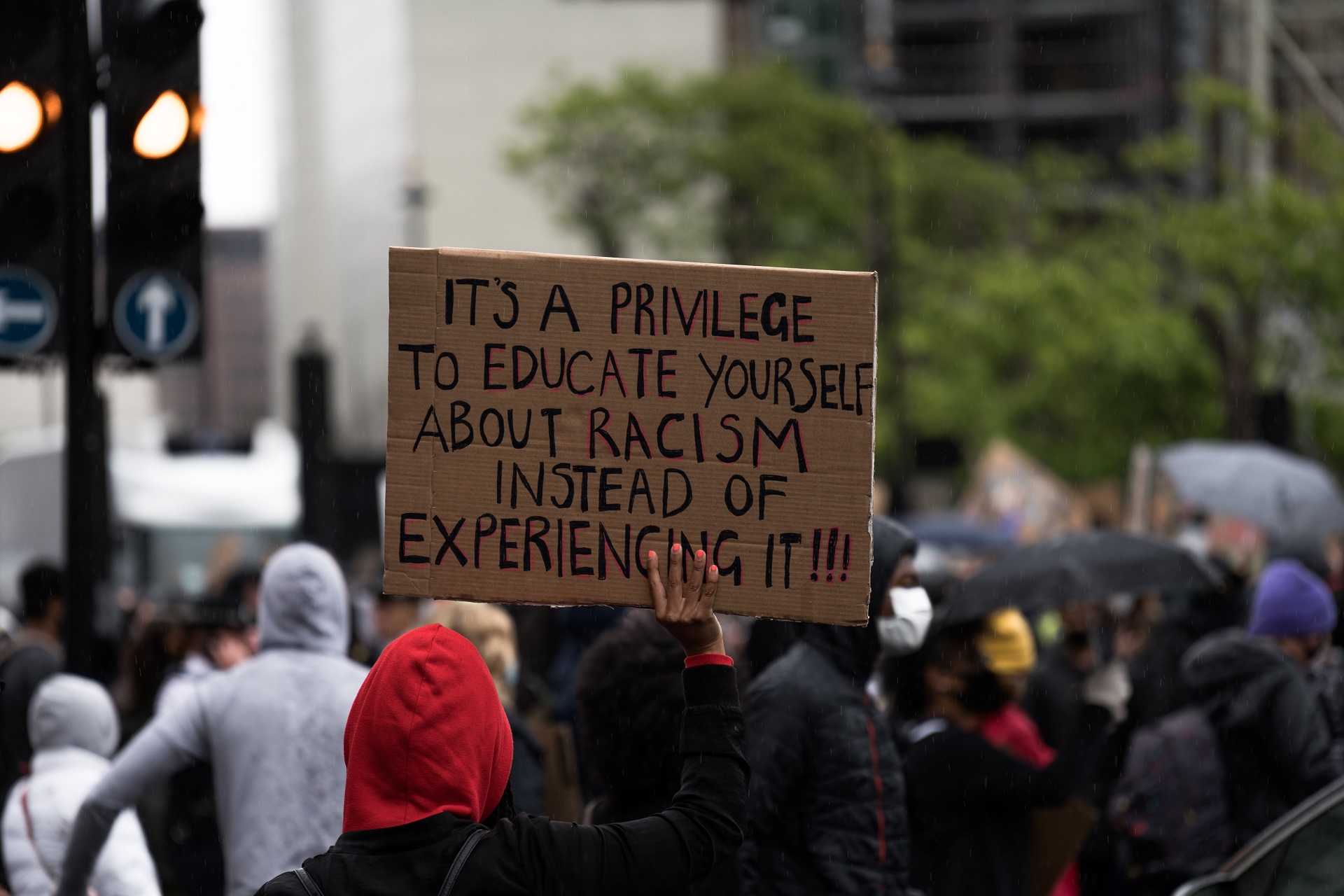
I’ll preface this blog by saying that I don’t believe my voice (that of a white woman) is one that needs to be amplified. I also believe that individuals who are BIPOC (Black, Indigenous, and People of Color) should not and cannot be the only ones acknowledging and speaking out against systemic racism and barriers to participation in academia and beyond. I am still learning how to best use my power and privilege to advocate for the BIPOC community and am always open to conversations and opportunities to learn and improve. Before you read my thoughts, please consider spending time with some of the following resources:
– Read and listen to Dr. Eric Archer’s thoughts on diversity in marine mammal science in a recent article and podcast.
– Check out this Twitter list featuring Black marine mammal researchers, including Justine Hudson, Dr. Tony Orr, Dominique Kone, and Dr. Eric Archer. Follow them to learn more about their research and perspectives.
– If you’re an underrepresented individual applying to science, technology, engineering, and math (STEM) graduate programs in fall 2020, or if you’re a STEM professional interested in mentoring a student through the graduate school application process, sign up for Cientifico Latino’s Graduate Student Mentorship Initiative.
– Start the free 21-Day Racial Equity Habit Building Challenge to actively educate yourself on topics like white privilege, white fragility, microaggressions, allyship, and being an anti-racist.
– Donate to organizations that give BIPOC access to environmental and marine research opportunities, like Diversity of Nature and Minorities in Shark Sciences.
April 10, 2019
St. Lucia, Eastern Caribbean Sea
14° 5′ 2.01″ N, 60° 57′ 56.63″W
For the first time in almost thirty years, our lab’s research sailboat, Balaena, has an entirely female crew. The five of us are positively giddy as we take pictures before leaving the harbor to start the fifteenth Dominica Sperm Whale Project field season. The lengthy delay in reaching this milestone likely had less to do with the demographics of my supervisor’s lab (almost 75% of students have been women) and more to do with sexism in sailing and the rarity of female skippers. That isn’t to say marine mammal science doesn’t struggle with gender parity issues—it does, and these issues are further exacerbated for women who are BIPOC.
When I look back on pictures from that monumental trip, I still feel the heady mixture of empowerment and happiness that I felt in the moment. But I can’t look at those pictures and see an all-female crew without also seeing an all-white crew.
In 2018, the Society for Marine Mammalogy (SMM) biennial conference was held in Halifax. On the first day of the conference, Dr. Asha de Vos—a Sri Lankan marine biologist who studies blue whales and founded the conservation organization Oceanswell—gave one of the plenary talks.
One of the first things Dr. de Vos did was ask the audience to take a look around the packed auditorium. Her point was abundantly clear: marine mammal science is overwhelmingly, and detrimentally, white.
As of 2017, over 75% of SMM members are from North America and Europe. That statistic isn’t a direct proxy for race, but the racial makeup of those continents highlights the dominant whiteness of the SMM. Dr. Eric Archer—a Black marine mammal geneticist who heads the Southwest Fisheries Science Center Marine Mammal Genetics program—recently commented that “although [he has] been in the field for over 25 years, [he does] not personally know of another African-American marine mammologist.” The whiteness of marine mammal science has roots in historical sexism, classism, and, of course, racism in the field (and in academia more broadly).
Marine mammal research is a hypercompetitive field and there are plenty of barriers to participation. One way that many people, myself included, get a foot in the door is through internships, an overwhelming number of which are unpaid or pay-to-play. People who can’t (or won’t) work for free are at an automatic disadvantage because there are so many who will. This classist trend isn’t unique to marine mammal science, but that doesn’t make it any less crippling for individuals from lower socioeconomic backgrounds. Again, socioeconomic status isn’t a direct proxy for race, but there are clear links between the two. For example, 50 years of U.S. census data show that the median income for Black households is markedly less than Hispanic households, white households, Asian households, and the average across all races. This disparity has many causes, all steeped in racism.
A relevant petition recently began making the rounds on Twitter. The authors—marine mammal researchers Dr. Eiren Jacobson, Ms. Chloe Malinka, and Dr. Margaret Siple—called for the SMM to remove unpaid internships from its job board and to update its Code of Professional Ethics to include that all marine mammal workers should be compensated. The petition was signed by over 700 people and has launched countless debates on Twitter, in labs, and on the popular marine mammal email list, MARMAM. Opinions span the gamut, with organizations and individuals sharing their own positive and negative experiences with unpaid internships. Recently, the conversation has migrated to a dedicated page on the SMM website, with a moderated online forum planned for August. Our society is finally starting to have hard conversations about not only unpaid internships, but also racism, leaky pipelines, and program funding.
As the old adage goes, the first step in solving a problem is recognizing it exists, and marine mammal science has a diversity problem. How our field chooses to address this problem over the coming months and years will, as Dr. Archer pointed out, have profound implications for who gets a seat and a voice at the table. We already know that science benefits from diversity. We owe it to ourselves, to the next generation of aspiring marine mammal researchers, and to the animals we study to tackle the stifling whiteness of marine mammal science head on. Having conversations about our field’s reliance on unpaid labor is a start.










